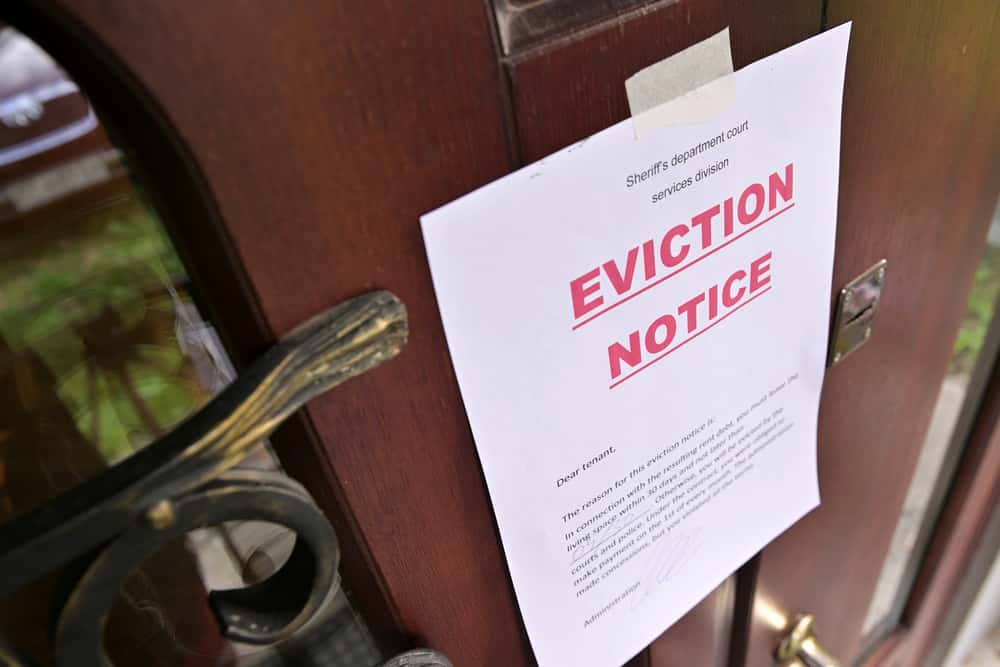Your First Mistake
You thought you were doing your roommate a small favor when you let her boyfriend crash at your shared apartment for a few weeks. Months later he’s still there, unemployed, not paying rent, and acting like he lives there permanently. Now the tension in the apartment is unbearable, and you’re wondering if you can make him leave without breaking the law.

Recognize The Legal Status Of The Person Living There
Before you take any other steps, you need to figure out whether your roommate’s boyfriend is officially a tenant, guest, or unauthorized occupant. If he never signed anything, pays no rent, and is staying only with your roommate’s informal permission, he may not have tenant rights in your jurisdiction.
Understand Your Rights Under The Lease Agreement
Check the master lease and any roommate agreement. If your name is on the lease, you may have the authority to object to unauthorized occupants. If only your roommate is on the lease, your rights now hinge on whether you’re considered a co-tenant or a permitted occupant.
Determine Whether He Pays Rent Or Has Tenant Rights
In many jurisdictions, a person who pays no rent and has no agreement with the landlord is legally considered a guest, not a tenant. If he’s making no financial contribution and was invited only by your roommate, he may not have the legal protections that a subtenant normally would.
Know Your Guest Vs Tenant Rules
Local tenancy laws vary from one place to another. Some regions make a clear distinction between guests, occupants, and tenants. A guest may stay temporarily without rights, but long-term, open-ended occupancy can sometimes be interpreted differently depending on where you live.
Your Role In The Household Matters
If you are the lease-holder or a legal tenant, you can legally take action with respect to unauthorized occupants. If your roommate is the only lease-holder, you’ll need their cooperation, or the landlord’s, to request removal of someone else living there.
Do Not Carry Out A Self-Help Eviction
Changing locks, removing belongings, or cutting off utilities is typically illegal, regardless of whether the targeted person is paying rent or not. Self-help eviction laws prohibit this action. Instead of making such a drastic move, follow the legal or mediated process to avoid penalties or legal consequences.
Start With A Calm, Direct Conversation
Talk to your roommate and the boyfriend together. Explain the issue, including financial strain, discomfort, or house rules. Make your expectations as clear as you can, and document the discussion in writing. This last step is key. Clear communication can sometimes defuse the issues before they escalate out of hand.
Give Written Notice Asking Him To Leave
A reasonable written notice, like asking him to leave by a specific date, establishes a record of your attempt to settle the issue peacefully. While this kind of notice might not be legally binding, it shows good faith and at least sets out a timeline for next steps.
If He Refuses, Get The Landlord Or Tribunal Involved
If he won’t leave voluntarily, you may have to get the landlord’s assistance or a formal application to your region’s housing board or tribunal. Unauthorized occupancy is a common basis for landlord intervention or administrative removal.
Can You Force Him To Pay Rent?
You can ask him to make a financial contribution, but doing so informally can complicate his legal status. Accepting rent may inadvertently create a tenancy, giving him more rights than he currently has. A written roommate agreement is essential if you decide to go this route.
Document All Interactions And Issues
Keep notes on when he moved in, how long he’s been staying there, any damage, communications, and all problems related to the living situation. If the situation escalates, a clear record will support your case with the landlord or tribunal.
Check For Local Health, Safety, And Occupancy Rules
Overcrowding, fire-safety violations, or municipal occupancy rules may be also come into play. If his presence creates such violations, you can use that information to involve the landlord or enforcement authorities.
Beware Of Tenant-Like Status Setting In
The longer someone stays, the more complicated it becomes to get rid of them. If he starts paying rent or has exclusive access to space, he may gain legal protections you didn’t intend. Getting ahead of the situation early avoids these issues.
Protect Yourself From Financial Liability
If your name is on the lease, you are responsible for the rent and condition of the unit. An unauthorized occupant could increase your risk if damage occurs or if household dynamics go sideways. Clarify your rights and responsibilities sooner rather than later.
Use A Written Roommate Agreement Going Forward
A written agreement outlines expectations, responsibilities, contributions, and rules. This helps you avoid future disputes and sets a consistent standard for all occupants in the home.
Seek Mediation Or Legal Advice If Necessary
If the situation starts getting confrontational or you feel unsafe, professional mediation or legal consultation can help. A local tenants’ rights clinic or lawyer can clarify your options based on jurisdiction.
Address Damage Or Disruptions Properly
If the boyfriend damages property, interferes with other tenants, or starts causing safety concerns, the landlord may then have the authority to require his removal. Document evidence to support such concerns if needed.
Understand Your Roommate’s Obligations
If your roommate allowed him to stay without permission, they may be in violation of the lease. The landlord could hold them accountable, and in some cases take action against the entire household.
Next Steps If He Still Refuses To Leave
If he still refuses to leave willingly and the landlord declines to get involved, you may have to file for an order of removal through your jurisdiction’s tribunal. This ensures due process gets followed and avoids unlawful eviction practices.
Act Soon To Protect Yourself
The longer you wait, the more complicated the situation becomes. Act early: communicate clearly, document everything, and follow legal procedures. This is your home we’re talking about; protecting it and your financial security needs timely and sound decision-making.
You May Also Like:
The Hazards Of Being A Landlord, And What To Do When Things Go Wrong



























